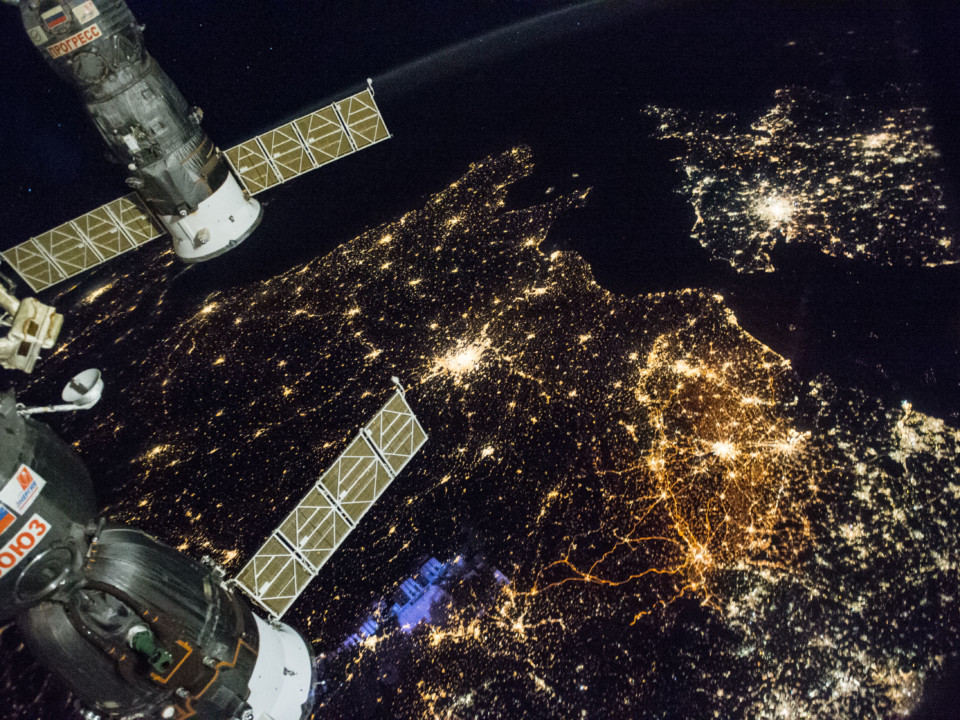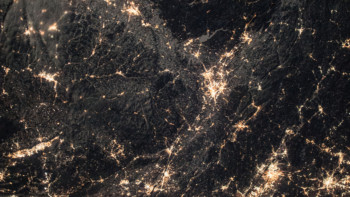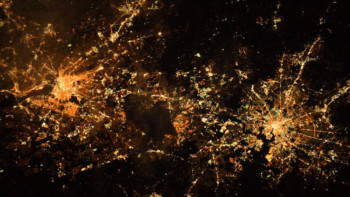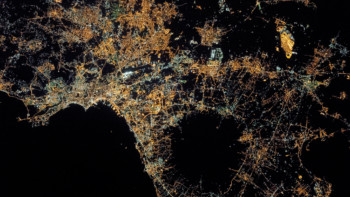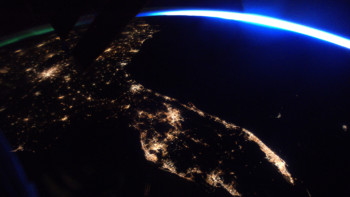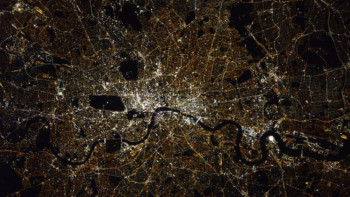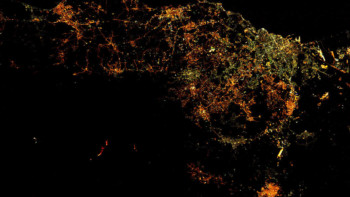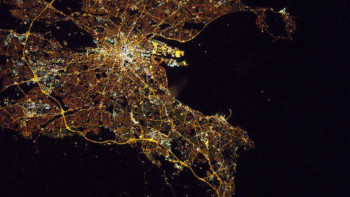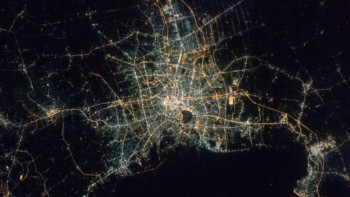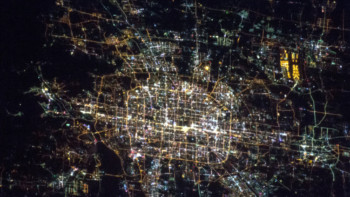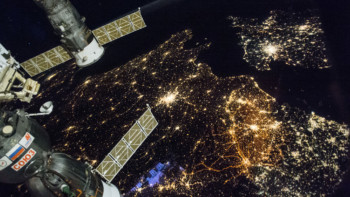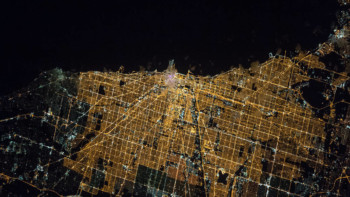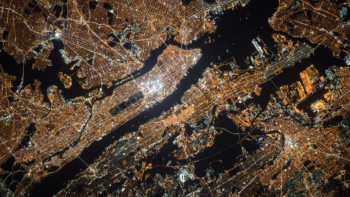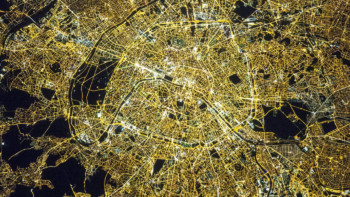This story starts with a simple question: Are you afraid of the dark? Recent studies show that at the very least, we sure our obsessed with night lights.
According to a study published in the journal Science Advances, we’ve gone through a modern “lighting revolution” that’s improved the quality of artificial lighting, and lowered the cost. But there’s a downside: We actually use more light than we need, especially when it comes to the outdoors.
This may seem like a relatively small pitfall, but it’s a slippery slope. With a light-dark cycle that significantly favors the light, scientists fear the earth is experiencing a widespread “loss of the night.”
From the home of our broadcasting center here in Washington, D.C. to China’s glowing capital of Beijing, the grand scale of outdoor lighting can be overwhelming. A nighttime view from above would show that a flood of artificial light is routinely emitted from major cities all over the world.
Not every country is throwing on the lights. A few war-torn countries, like Syria and Yemen, actually experienced a decrease in nighttime light use between 2012 and 2016. But if one of the only successful way of decreasing light pollution regionally has been civil war, perhaps it’s time we worked on some better strategies.
We could start in big cities, like Washington, D.C. Just take a stroll in the Dupont Circle neighborhood at night, and you’d be surrounded by an abundance of artificial lighting. Neon signs, street lamps and tunnel lights make it nearly as bright as day. CGTN’s Jim Spellman spoke to Jim Dougherty of the International Dark-Sky Association, who said humans’ love-affair with light isn’t all too surprising.
“People don’t want smart. People want more light. Humans are naturally afraid of the dark,” he said. But there’s a bigger issue at stake than just a fear of what could be waiting in the dark. Dougherty said all the light is damaging human health.

Nighttime view of Shanghai, 2012 vs. 2016. (Credit: NASA Earth Observatory/ Goddard Space Flight Center)
“If you don’t sleep in a dark room you are probably going to sleep more poorly, which could affect your behavior, your weight and we know that if we suppress melatonin production, which it does, melatonin is a powerful anti-cancer hormone, so there is reason to believe it is increasing cancer risk,” he explained.
Dougherty is far from exaggerating. Studies show that melatonin is a “naturally healing” hormone, functioning as an antioxidant, an anti-inflammatory agent and an estrogen regulator. This makes it a key component in not just treating cancer, but also preventing it.
Studies also show that an increase in sleeping problems positively correlates to breast cancer in women. Whatever we can do to improve our sleep quality drastically decreases our risk of diseases, and turning off the lights is one, easy step.
NASA satellite images are proof that the world is getting brighter. From 2012 to 2016, artificially lit-areas of the world grew by more than two-percent a year.
Light pollution affects the entire planet, and efforts to fight it require a global community of support. Scientists like Bill Nye have even gotten involved in the fight, by working with groups that have a simple message: light up responsibly.
“Think about it. Think of all the energy we waste by blasting all this light into space every night, but perhaps more importantly: we can’t see the stars,” Nye said. “When we don’t see the stars, we’re not aware of our place in the cosmos. We lose our sense of our place in space.”

Nighttime view of U.S coast, 2016 (Credits: NASA Earth Observatory/ Suomi NPP VIIRS/ NASA’s Goddard Space Flight Center)
So why is it so hard to convince people to turn off the light? It’s predominately a matter of security: People just feel more safe at night when the lights are on. Regardless, studies have shown that added outdoor lighting, such as extra street lamps, doesn’t actually deter crime. Some people think keeping your house bright at night keeps burglars away, but even that’s proven to be only marginally effective.
In the end, too many ‘night lights’ waste a lot of energy, and the payback is minimal. The International Dark-Sky Association estimates that global electricity use could drop by one percent if these changes are made, but the onus is largely on communities working together to reduce outdoor lighting. That could also help the world meet the goals of the Paris climate accord and reduce global warming.
And on a smaller scale, perhaps it wouldn’t hurt us all to just look up at the sky, and take in the starlight.
 CGTN America
CGTN America
